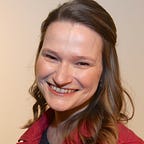Conquering the Oregon Trail
Reflections on the fourth iteration of Offline Camp
The famed Oregon Trail is supposed to take 4–6 months to cross, but as Offline Camp organizers we’ve had a longer road. Offline Camp Oregon, which took place November 10–13, was our fourth event in the past 18 months, and our wagon party’s been growing along the way. From the Catskills to California to Berlin to Oregon, we’ve been pleased to welcome new members to the Offline First community at each event.
This time around we were especially excited to increase diversity in the Offline First community by expanding our scholarship program, which provided discounts, tickets, or travel support for 7 campers who otherwise wouldn’t have been able to join us. That was all made possible thanks to personal donations to our scholarship fund.
The 26-person group that gathered in Oregon was made up of developers, UX professionals, entrepreneurs, non-profit founders, developer advocates, event and community organizers, and other awesome folks who were excited to explore the challenges of creating technology that works with limited connectivity.
As I’ve shared in past articles, Offline Camp is an event carefully crafted to build and nurture the community, from the way we select our campers to the way we structure our discussions. It’s important to us to choose a venue where we can spend the weekend as a community, intentionally secluded from the world around us. Our home for this iteration of the event was Cascade Mountain Ranch in Grants Pass, Oregon, in the gorgeous Pacific Northwest of the United States. For the first time in Offline Camp history, we had very limited WiFi access, which brought a little extra urgency to the task of creating Offline First solutions. We shared living space in two lodges, and the rustic, dishwasher-free nature of our kitchen area led to a new community activity: dish crew! Whether scrubbing pots, cooking breakfast, carpooling, or playing late-night games of Werewolves around the campfire, we had plenty of opportunities for bonding with our fellow campers (not to mention the ranch’s much-anticipated llamas).
In traditional unconference style, we also had lots of opportunity to explore Offline First challenges through discussion, with campers suggesting topics and voting on them each morning. After splitting into small groups to discuss the most popular issues, we came together to share recaps that eased our FOMO for the sessions we weren’t able to get to ourselves. Although unconference sessions are typically open discussions, rather than a speaker and an audience, campers in Oregon voted to add a couple tutorials to the mix so they could get some hands-on experience with a technology that was new to them, with help from an expert among us. Session topics included:
- CouchDB, PouchDB, and Hoodie as a Stack for Progressive Web Apps
- Beaker Browser
- Blockchain
- Mesh Networks
- The Economics of the Internet (Offline First to Save the World)
- Service Worker Challenges
- The Future of Progressive Web Apps: Desktop!
- Offline First for Data Science
- Tutorial: Writing a Service Worker from Scratch
- A Smorgasbord of Caching & Sync
- Pitching Offline First to Stakeholders (Economics of the Internet, continued)
- Governance of Decentralized & Peer-to-Peer (P2P) Networks
- Tutorial: My First Hoodie App
- UX of Offline
- Future of Service Worker
Although our unconference sessions focused on common themes in our shared Offline First community, we also scheduled time for exploring the diversity of interests of our attendees. Through 5-minute passion talks, campers had the opportunity to share anything they were excited about, whether or not it was related to technology or to Offline First. The topics shared in Oregon included:
- Better Hackathons
- Mapping the Economics of the Internet
- Scuttlebutt
- Mesh Networks
- Strange Kindness
- Make Life More Memorable
- SAM Patterns
- Scalable CouchDB Replication and Change Listening with Spiegel
- Hospital Run: Top Reasons to Contribute
- Techlahoma Grassroots (OKC Tech Community)
- Decentralization is Not Enough
- Bash/Linux on Windows
- I Have Standards
- The Web I Want Back
- Side Projects Galore
- Robots for Everyone
- P2P: No Wrapper, No Server
- The Indian Toilet Problem
Over the coming weeks and months, we’ll be sharing what we learned at Offline Camp with the broader Offline First community by summarizing each of our discussion sessions in articles and releasing videos of many of our passion talks to share. To ensure you see see as much of that content as possible, you may want to follow this Offline Camp Medium publication (using the button at the bottom of this article) and subscribe to the Offline First YouTube channel, where we share both camp content and talks about Offline First from other events. In the meantime, you can check out our recommended resources for learning about Offline First or getting more involved in the community.
As event organizers, we owe a huge thank you to everyone who made Offline Camp Oregon possible, from our amazing campers to our generous scholarship fund donors to the folks at IBM, Microsoft, Make & Model, and Neighbourhoodie who sponsored the event. This is truly a community effort, and we’re very proud to be part of the Offline First community.
Editor’s Note: We’re already at work on plans for our next events, and we’d love your help deciding where to host the next Offline Camp. Please cast your vote now and we’ll let you know when our next location is announced. If you’d like to support our efforts to increase the diversity of the Offline First community, You can donate to our scholarship fund for upcoming events.
